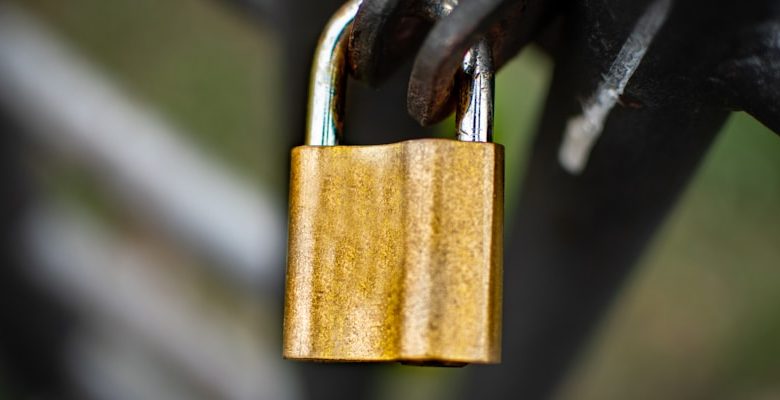How to Protect Your Private Keys from Phishing Scams

- Understanding the Importance of Private Keys
- Identifying Common Phishing Scams Targeting Private Keys
- Best Practices for Securely Storing and Managing Private Keys
- Tips for Recognizing and Avoiding Phishing Attempts
- Utilizing Two-Factor Authentication to Enhance Security
- Steps to Take if Your Private Keys Have Been Compromised
Understanding the Importance of Private Keys
Private keys are a crucial component in securing your digital assets. These keys are essentially a form of password that allows you to access and manage your cryptocurrency holdings. Without your private key, you would not be able to send or receive funds, making it essential to keep it safe and secure. Understanding the importance of private keys is key to protecting your investments from phishing scams.
Identifying Common Phishing Scams Targeting Private Keys
When it comes to protecting your private keys from phishing scams, it is crucial to be able to identify common techniques used by scammers. By being aware of the various types of phishing scams that target private keys, you can take the necessary precautions to safeguard your sensitive information.
- One common phishing scam targeting private keys involves emails that appear to be from legitimate sources, such as cryptocurrency exchanges or wallet providers. These emails typically contain urgent messages prompting you to click on a link and enter your private key or other confidential information.
- Another type of phishing scam to watch out for is fake websites that mimic the appearance of trusted platforms. These websites may prompt you to enter your private key in order to access your account or verify your identity, only to steal your information once it is entered.
- Phishing scams can also take the form of social media messages, where scammers impersonate trusted contacts or companies to trick you into revealing your private key. These messages often contain enticing offers or urgent requests designed to manipulate you into disclosing sensitive information.
- It is important to remember that legitimate organizations will never ask you to provide your private key or other confidential information via email, website, or social media message. If you receive a suspicious communication requesting this information, it is best to verify the source through official channels before taking any action.
By familiarizing yourself with these common phishing scams targeting private keys, you can better protect yourself from falling victim to fraudulent schemes. Remember to always exercise caution when sharing sensitive information online and to verify the authenticity of any requests before complying.
Best Practices for Securely Storing and Managing Private Keys
When it comes to securely storing and managing your private keys, there are several best practices to keep in mind to protect yourself from phishing scams. One of the most important things to remember is to never share your private keys with anyone, as this can make you vulnerable to unauthorized access to your sensitive information.
It is also recommended to use a secure password manager to store your private keys, as this can help prevent unauthorized access to your accounts. Additionally, consider using a hardware wallet to store your private keys offline, which can provide an extra layer of security against phishing attacks.
Another best practice is to regularly update your software and enable two-factor authentication on all of your accounts that use private keys. This can help prevent unauthorized access to your information and reduce the risk of falling victim to phishing scams.
Tips for Recognizing and Avoiding Phishing Attempts
When it comes to protecting your private keys from phishing scams, it is crucial to be able to recognize and avoid phishing attempts. Here are some tips to help you stay safe:
- Be cautious of emails asking for sensitive information
- Check the sender’s email address for any discrepancies
- Avoid clicking on links or downloading attachments from unknown sources
- Verify the legitimacy of the website before entering any personal information
- Keep your software and antivirus programs up to date to prevent phishing attacks
By following these tips, you can protect your private keys and avoid falling victim to phishing scams that could compromise your sensitive information.
Utilizing Two-Factor Authentication to Enhance Security
One effective way to enhance the security of your private keys and protect them from phishing scams is by utilizing two-factor authentication (2FA). Two-factor authentication adds an extra layer of security by requiring not only a password and username but also something that only the user has on them, i.e., a piece of information only they should know or have immediately to hand – such as a physical token.
When using two-factor authentication, even if a hacker manages to obtain your password through a phishing scam, they would still need the second factor to access your private keys. This significantly reduces the risk of unauthorized access to your sensitive information.
There are various forms of two-factor authentication, including SMS codes, authenticator apps, biometric verification, and hardware tokens. It is recommended to choose the option that best suits your needs and provides the highest level of security for your private keys.
Steps to Take if Your Private Keys Have Been Compromised
If you suspect that your private keys have been compromised, it is crucial to take immediate action to protect your sensitive information. Follow these steps to minimize the potential damage and secure your assets:
1. **Change Your Private Keys**: The first and most important step is to generate new private keys and replace the compromised ones. This will prevent unauthorized access to your accounts and safeguard your funds from phishing scams.
2. **Notify Authorities**: Report the incident to the relevant authorities, such as your cryptocurrency exchange or wallet provider. They may be able to assist you in tracking the unauthorized access and recovering any stolen assets.
3. **Monitor Your Accounts**: Keep a close eye on your accounts for any suspicious activity or unauthorized transactions. Regularly check your balances and transaction history to ensure that your funds are secure.
4. **Enable Two-Factor Authentication**: Enhance the security of your accounts by enabling two-factor authentication. This additional layer of protection will help prevent unauthorized access even if your private keys are compromised.
5. **Educate Yourself**: Take this opportunity to educate yourself about phishing scams and other cybersecurity threats. Stay informed about the latest tactics used by scammers and learn how to protect yourself from future attacks.
By following these steps, you can mitigate the risks associated with compromised private keys and take proactive measures to safeguard your assets. Remember to stay vigilant and prioritize the security of your accounts to prevent falling victim to phishing scams in the future.



